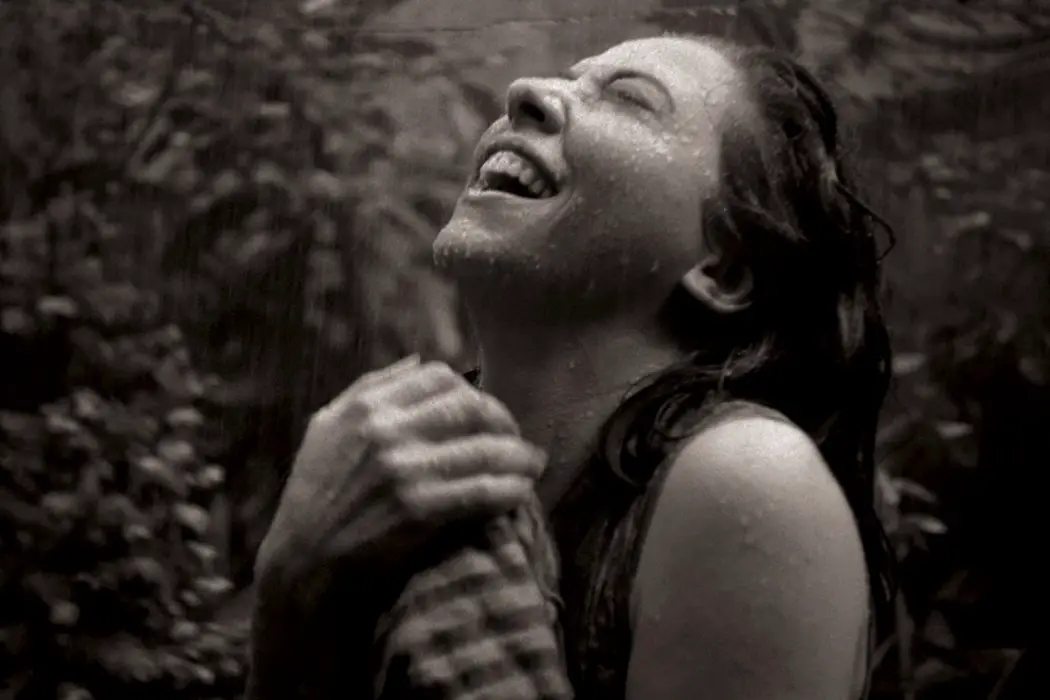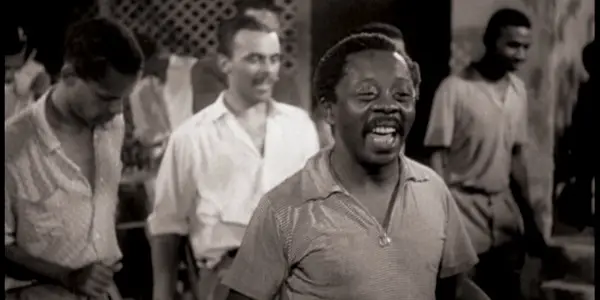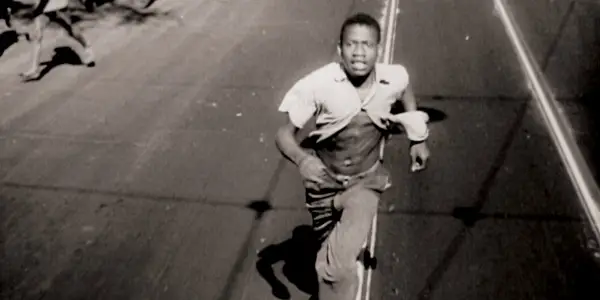CINEMA NOVO: Not For Novices

It took me a while to discover the wonderful world…
I often wonder who would make up a documentarian’s ideal audience: viewers totally new to the subject, or viewers who are very familiar with it?
If you don’t know anything about the documentary’s subject matter, then you need an awful lot explained to you, and some subtle references might go over your head. But then a viewer who is a blank canvas for the documentarian leaves them huge scope to put their ideas across, without any competition from opposing sources.
However, if you are an expert at the matter, the documentarian must battle with your existing knowledge, which may jar with what they have to say. They must avoid boring you, by telling you too many things you already know. On the other hand, beginning with a high level of knowledge means that they could get to the complexities more quickly, and cover them in more depth.
Running and Dancing
Usually of course, an audience of any given documentary is made out of varying expertise levels, and the filmmaker must find a way of catering to them all. But Cinema Novo‘s director Eryk Rocha wants no part of that. He has no use for novices in his audience.

The first people we see are running. A man and a woman race across a vast, monochrome landscape, evading an off-screen assailant. Two little boys run through a favela. A man runs along a beach, and a woman through some trees. A group of men run a long a crowded street, and a boy sprints desperately, trying to catch a departed tram. After the running comes the dancing. Most of the film is soundtracked by a rhythmic samba beat; if the people on screen aren’t dancing, then you might well be. Cinema Novo is a documentary obsessed with pace and movement.
It’s compiled from two type of footage: film clips, and archival interviews with Novo directors. The film clips are woven together seamlessly. The scenes are well chosen, and almost always intriguing. Who are those people running from? Why is that man laughing maniacally? Why is that little boy crying? Why is the swimming pool full of body parts? Don’t expect to find the answers in this documentary; very few of the film clips are given any kind of context or explanation.
That could have been forgivable. After all, Cinema Novo is clearly not an ordinary documentary; its lyrical editing and lack of conventional narration make it clear that the film is going for poetry not prose. You could imagine Rocha arguing that the individual scenes featured here are not important other than in the picture they give of Cinema Novo as a whole. And the whole is inarguably lovely, at least visually; the rhythms, the photography, and the acting in this Novo patchwork are quite something.

But Cinema Novo doesn’t even put titles on the clips to tell you which film they are from, and that is inexcusable. Many will want to use this documentary as a jumping off point for further viewing, but by omitting these important details, Rocha has made this a near-impossible task. The lack of these film titles shows that Rocha has not made this film to educate new audiences, but for existing fans only.
Directors Speak
The other feature of Cinema Novo is the archival interviews with directors and cinematographers like Glauber Rocha (Eryk‘s father), Nelson Pereira dos Santos, and Mario Carneiro.
Much of what the directors say is as confusing as the dearth of film titles; dropping names with no further information, and mentioning words that have no meaning to a novice audience, without explanation. Using archival interviews does add a layer of atmosphere to the documentary as a whole, and it is good to see the faces of the men that made the movies. Overall though, it’s just another example of Rocha‘s determination to leave newcomers in the dark.
What is understandable from these interviews is pretty basic information. When talking about Cinema Novo, these directors speak in elegant sentences that sound good, but aren’t substantive. They were ‘getting Brazilian cinema in touch with its own reality.’ ‘I try to talk about reality in its complexity’. ‘We vomited cinema’. ‘We didn’t just like each other, we were growing into each other’. Evocative words, but short on details.
By the end of the film, all a beginner will have learned about Cinema Novo is that the movement took place during the sixties, and was Brazil’s answer to Italian Neorealism. ‘We wanted to shoot exteriors, the streets, that living thing.’ ‘There was a very radical scission between documentary and fiction, and we didn’t stick to that’. This is all well and good, but one could justifiably hope to learn more than that from a ninety-minute documentary.
Cinema Novo: Conclusion
If you’re a fan of Cinema Novo films, it’s likely you will enjoy this documentary. Rocha weaves together a wide array of clips with a lyricism which illustrates how the individual movies made up the larger movement. The archival interview footage with the directors will also appeal.
Novices, however, will leave disappointed. Rocha shows no desire to initiate the uninitiated, or educate people who have come to his documentary looking for a starter course. The biggest problem is the lack of titles telling you where the movie clips are taken from. You may see a particularly striking scene (the documentary does not lack for them), and want to know its origin, but Cinema Novo has no interest in helping you find it.
Thanks to that fundamental flaw, it is a documentary for fans only. If you’re looking to learn about the historic film movement, Cinema Novo is not for you.
Are you a fan of Cinema Novo? If so, what did you think of Cinema Novo?
Cinema Novo will see release on September 19th. For further information, click here.
Does content like this matter to you?
Become a Member and support film journalism. Unlock access to all of Film Inquiry`s great articles. Join a community of like-minded readers who are passionate about cinema - get access to our private members Network, give back to independent filmmakers, and more.
It took me a while to discover the wonderful world of cinema, but once I did, everything just fell into place.













